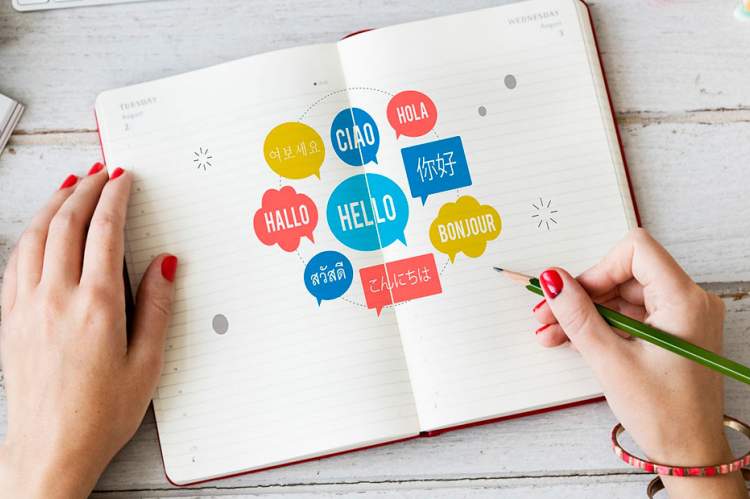Reciting charms, amulets and evil eye in islam
IMPORTANCE OF MU’AWIDHATAYN (SURAHS 113. AL-FALAQ AND 114. AN-NAS)
Let's distinguish: there is a world of faith and tradition that man's consciousness imposes on himself and, over time it moves away from the situation in which it was formed. Then those are distorted into superstitions, pagan traditions. This is forbidden in Islam
But who knows what Islam is about and understands that Allah is not only the Lord of a world what is captured by human consciousness, but He is the Lord of all worlds, for him/her the existence of an Unknown or Invisible World in which there are beings as well as in the Visible world, it is an comprehendible concept. Of course, these are not to be imagined in the winged, hoofed and horned forms depicted in medieval Catholicism, because these views were inherited from the ancient Egypt which existed thousands of years ago. It is understandable, since the birthplace of Christianity was Alexandria, where these images were present. In Islam, one cannot form an image of an invisible world, even within himself. However, the Quran makes us aware of the existence of these worlds and the creatures within them. These can be called djinns, demons, ghosts, angels, etc., but those are just names. Those are all creatures of Allah and should serve Him. This ministry was denied by Iblis (Lucifer in the Christian culture), or for a time by the djinns over whom Solomon (Suleiman) was given power by Allah (SWT) in order to discipline them. It was their physical strength that Solomon used in the building of the Temple, and angels Harut and Marut (Quran 2:102) who tempted people by magic and fortune-telling, only to prove that the supreme reality is finally Allah.
Nevertheless, there are still those who call the beings of the Invisible World. It has a huge history in Africa under the names of Ju-Ju, Gri-gri and many others. The scope of the FB does not allow me to write about those in detail, so let's stay straight with the Islam. As for the Prophet (peace be upon him) his enemies also used magic against him. If we understand his story, we can get an accurate picture of how we relate to those and how to raise ourselves above those.
The following narrative is based on the work of Sayyid Abul Ala Maududi Tafhim al-Quran - The Meaning of Quran, which I used in the introduction of the 113th and 114th Surahs in my translation and explanation of the Quran. This article becomes complete when the two Surahs and their explanations are read together with these guidelines.
After the peace treaty of Hudaibiyah when the Holy Prophet (upon whom be peace) returned to Madinah, a deputation of the Jews of Khaibar visited Madinah in Muharram, A.H. 7 and met a famous magician, Labid bin Asam, who belonged to the Ansar tribe of Bani Zurayq. They said to him: "You know how Muhammad (upon whom be Allah's peace and blessings) has treated us. We have tried our best to bewitch him but have not succeeded. Now we have come to you because you are a more skilled magician. Here are three gold coins, accept these and cast a powerful magic spell on Muhammad."
In those days the Holy Prophet had a Jewish boy as his attendant. Through him they obtained a piece of the Holy Prophet's comb with some hair stuck to it. Magic was worked on the same hair and the teeth of the comb. According to some traditions, magic was worked by Labid bin Asam himself, according to others, his sisters were more skilled than him and he got the spell cast through them. Whatever be the case, Labid placed this spell in the spathe of a male date-tree and his it under a stone at the bottom of Dharwan or Dhi Arwan, the well of Bani Zurayq.

The spell took one whole year to have effect upon the Holy Prophet (upon whom be peace). In the latter half of the year the Holy Prophet started feeling as if was unwell. The last forty days became hard on him, of which the last three days were even harder. But its maximum effect on him was that he way melting away from within. He thought he had done a thing whereas, in fact, he had not done it: he thought he had visited his wives whereas he had not visited them; and sometimes he would doubt having seen something whereas, in fact, he had not seen it. All these effects were confined to his own person; so much so that the other people could not notice what state he was passing through. As for his being a Prophet, no change occurred in the performance of his duties.
There is no tradition to say that he might have forgotten some verses of the Qur'an in those days, or might have recited a verse wrongly, or a change might have occurred in the assemblies and in his counsels and sermons, or he might have presented a discourse as Revelation which may not have been revealed to him, or he might have missed a Prayer and thought that he had performed it. God forbid, if any such thing had happened, it would have caused a clamor and the whole of Arabia would have known that a magician had overpowered the one whom no power had been able to overpower. But the Holy Prophet's position as a Prophet remained wholly unaffected by it. Only in his personal life he remained worried on account of it. At last, one day when he was in the house of Hadrat Aishah, he prayed to Allah to be restored to full health. In the meantime he fell asleep or drowsed and on waking he said to Hadrat Aishah: "My Lord has told me what I had asked of Him." Hadrat Aishah asked what it was. He replied: "Two men (i.e. two angels in human guise) came to me. One sat near my head and the other near my feet. The first asked: what has happened to him? The other replied: Magic has been worked on him. The first asked: who has worked it? He replied: Labid bin Asam. He asked: In what is it contained? He replied: In the comb and hair covered in the spathe of a male date-tree. He asked: where is it? He replied: under a stone at the bottom of Dhi Arwan (or Dharwan), the well of Bani Zurayq. He asked: what should be done about it? He replied: the well should be emptied and it should be taken out from under the stone. The Holy Prophet then sent Hadrat Ali, Hadrat Ammar bin Yasir and Hadrat Zubair: They were also joined by Jubair bin Iyas azZurqi (two men from Bani Zurayq). Later the Holy Prophet also arrived at the well along with some Companions. The water was taken out and the spathe recovered. There they found that beside the comb and hair there was a cord with eleven knots on it and a wax image with needles pricked into it. Gabriel (peace be on him) came and told him to repeat the Mu'awwidhatayn (Surahs 113. Al-Falaq and 114. An-Nas). As he repeated verse after verse, a knot was loosened and a needle taken out every time, till on finishing the last words all the knots were loosened and all the needles removed, and he was entirely freed from the charm. After this he called Labid and questioned him. He confessed his guilt and the Holy Prophet let him go, for he never avenged himself on anyone for any harm done to his person.
Now, obviously this objection does not at all apply to a matter about which history confirms that the magic spell had affected only the person of Muhammad (upon whom be peace) and not the Prophethood of Muhammad (upon whom be peace), which remained wholly unaffected by it. In this connection, another thing worthy of mention is that the people who regard magic as a kind of superstition hold this view only because the effect of magic cannot be explained scientifically. But there are many things in the world which one experiences and observes but one cannot explain scientifically how they happen. If we cannot give any such explanation it does not become necessary that we should deny the thing itself which we cannot explain. Magic, in fact, is a psychological phenomenon which can affect the body through the mind just as physical things affect the mind through the body.
Question of Reciting Charms and Amulets in Islam
The third thing that arises in connection with these Surahs is whether recitation of charms and amulets has any place in Islam, and whether such recitation is by itself efficacious or not. This question arises for in many ahadith it has been reported that the Holy Prophet (upon whom be peace) at the time of going to bed every night, especially during illness, used to recite the Mu'awwidhatayn (or according to other reports, the Mu'awwidhat, i.e. Qul Huwa-Allahu Ahad and the Mu'awwidhatayn) thrice, blow in his hands and then rub the hands on his body from head to foot as far as his hands could reach. During his last illness when it was not longer possible for him to so do, Hadrat Aishah recited these Surahs herself or by his command blew on his hands in view of their being blessed and rubbed them on his body. Traditions on this subject have been related in Bukhari, Muslim, Nasai, Ibn Majah, Abu Da'ud and Mu'atta of Imam Malik through authentic channels on the authority of Hadrat Aishah herself beside whom no one could be better acquainted with the domestic life of the Holy Prophet.
In this regard, one should first understand its religious aspect. In the Hadith a lengthy tradition has been related on the authority of Hadrat Abdullah bin Abbas, at the end of which the Holy Prophet is reported to have said: "The people of my Ummah to enter Paradise without reckoning will be those who neither turn to treatment by branding, nor to enchanting, nor take omens, but have trust in their Lord." (Muslim).
According to a tradition reported on the authority of Hadrat Mughirah bin Shubah, the Holy Prophet said: "He who got himself treated by branding, or enchanting, became independent of trust in Allah." (Tirmidhi). Hadrat Abdullah bin Mas'ud has reported that the Holy Prophet disapproved of ten things one of which was recitation of charms and amulets except by means of the Mu'awwidhatayn or Mu'awwidhat. (Abu Daud, Ahmad, Nasai, Ibn Hibban, Hakim).
Some ahadith also show that in the beginning the Holy Prophet had altogether forbidden recitation of charms and amulets, but later he allowed it on the condition that is should not smack of polytheism, but one should recite and blow by means of the holy names of Allah, or the words of the Qur'an. The words used should be understandable and one should know that there is nothing sinful in it, and one should not wholly rely on the recitation of charms but on Allah's will to make it beneficial." After the explanation of the religious aspect, let us now see what the Hadith says in this regard.
Tabarani in As-Saghir has related a tradition on the authority of Hadrat Ali, saying: "One the Holy Prophet was stung by a scorpion during the Prayer. When the Prayer was over, he remarked: God's curse be on the scorpion: it neither spares a praying one, nor any other. Then he called for water and salt, and started rubbing the place where the scorpion had stung with salt water and reciting Qul ya ayyuhal-kafirun, Qul Huwa Allahu ahad, Qul a'udhu bi-Rabbil-falaq and Qul a'udhu bi-Rabbin-nas, along with it."
Ibn Abbas also has related a tradition to the effect: "The Holy Prophet (upon whom be peace) used to recite this invocation over Hadrat Hasan and Husain: U'idhu kuma bi-kalimat Allahit-tamati min kulli shaitan-in wa hammati-wa min kulli ayt-in-lam nati: "I give you in the refuge of Allah's blameless words, from every devil and troublesome thing, and from every evil look." (Bukhari, Musnad Ahmad, Tirmidhi, Ibn Majah).
A tradition has been related in Muslim, Muwatta, Tabarani and Hakim about Uthman bin al-As athThaqafi, with a little variation in wording, to the effect that he complained to the Holy Prophet (upon whom be peace), saying: "Since I have become a Muslim, I feel a pain in my body, which is killing me." The Holy Prophet said: "Place your right hand on the place where you feel the pain, then recite Bismillah thrice, and A'udhu billahi wa qudratihi min sharri ma ajidu wa uhadhiru ("I seek refuge with Allah and with His power from the evil that I find and that I fear") seven times, and rub your hand."
Musnad Ahmad and Tahavi contain this tradition from Talq bin Ali: "I was stung by a scorpion in the presence of the Holy Prophet (upon whom be peace). The Holy Prophet recited something and blew over me and rubbed his hand on the affected place."
Muslim contains a tradition from Abu Said Khudri, which says: "Once when the Holy Prophet (upon whom be peace) fell ill, Gabriel came and asked: O Muhammad, are you ill? The Holy Prophet answered in the affirmative. Gabriel said: I blow on you in the name of Allah from everything which troubles you and from the evil of every soul and the evil look of every envier. May Allah restore you to health. I blow on you in His name."
Imam Ahmad in his Musnad has related this tradition from Hafsah, mother of the Faithful: "One day the Holy Prophet (upon whom be peace) visited me in the house and a woman, named Shifa, was sitting with me. She used to blow on the people to cure them of blisters. The Holy Prophet said to her: Teach Hafsah also the formula."
Muslim, Musnad Ahmad and Ibn Majah contain a tradition from Hadrat Jabir bin Abdullah, saying: "The Holy Prophet (upon whom be peace) had forbidden us blowing to cure disease. Then the people of the clan of Hadrat Amr bin Hazm came and they said: We had a formula with which we used to blow on the people to cure them of scorpion's sting (or snake-bite). But you have forbidden us the practice. Then they recited before him the words which they made use of. Thereupon the Holy Prophet said: I do not see any harm in it, so let the one who can do good to his brother, do him good."
According to Muwatta, Hadrat Abu Bakr went to the house of his daughter, Hadrat Aishah, and found that she was unwell and a Jewish woman was blowing over her. Thereupon he said to her: "Blow over her by means of the Book of Allah." This shows that if the people of the Book practice blowing by means of the verses of the Torah and the Gospel, it is also permitted.
Relation between Surah Al-Fatihah and the Mu'awwidhatayn
The last thing which is noteworthy with regard to the Mu'awwidhatayn is the relation between the beginning and the end of the Qur'an. Although the Qur'an has not been arranged chronologically, the Holy Prophet (upon whom be peace) arranged in the present order the verses and Surahs revealed during 23 years on different occasions to meet different needs and situations not by himself but by the command of Allah Who revealed them. According to this order, the Qur'an opens with the Surah Al-Fatihah and ends with the Mu'awwidhatayn.
In the beginning, after praising and glorifying Allah, Who is Lord of the worlds, Kind, Merciful and Master of the Judgment Day, the servants submits: "Lord, You alone I worship and to You along I turn for help, and the most urgent help that I need from You is to be guided to the Straight Way." In answer, he is given by Allah the whole Qur'an to show him the Straight Way, which is concluded thus: Man prays to Allah, Who is Lord of dawn, Lord of men, King of men, Deity of men, saying: "I seek refuge only with You for protection from every evil and mischief of every creature, and in particular, from the evil whisperings of devils, be they from among men or jinn, for they are the greatest obstacle in following the Straight Way." The relation that the beginning bears with the end, cannot remain hidden from anyone who has understanding and insight.



















